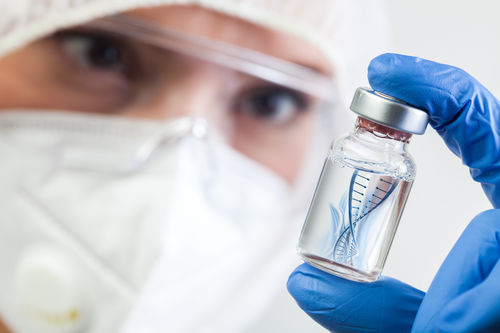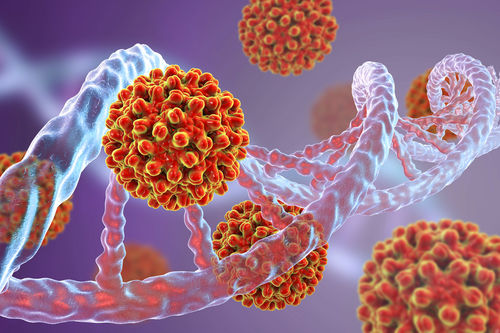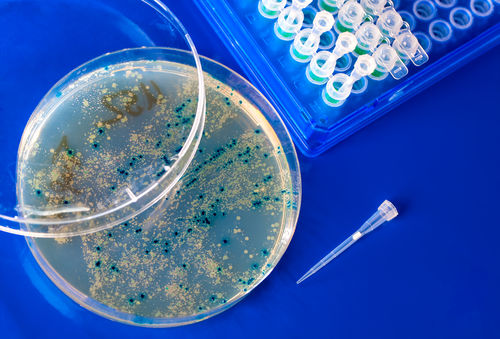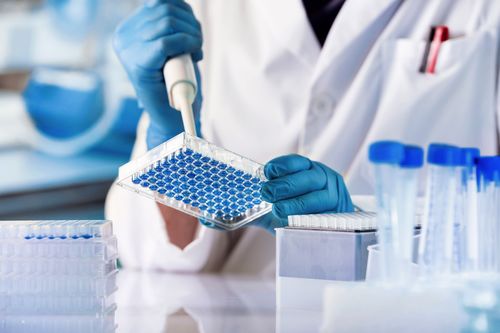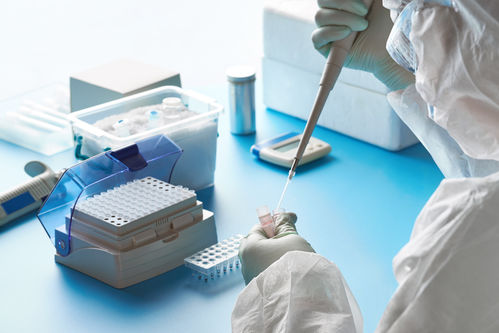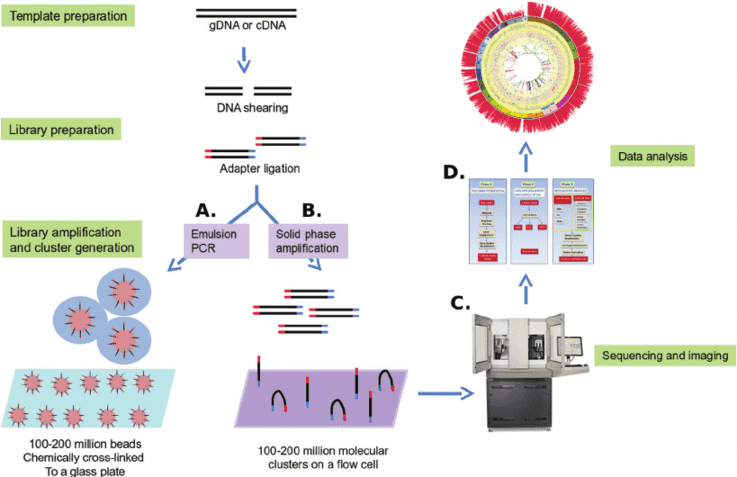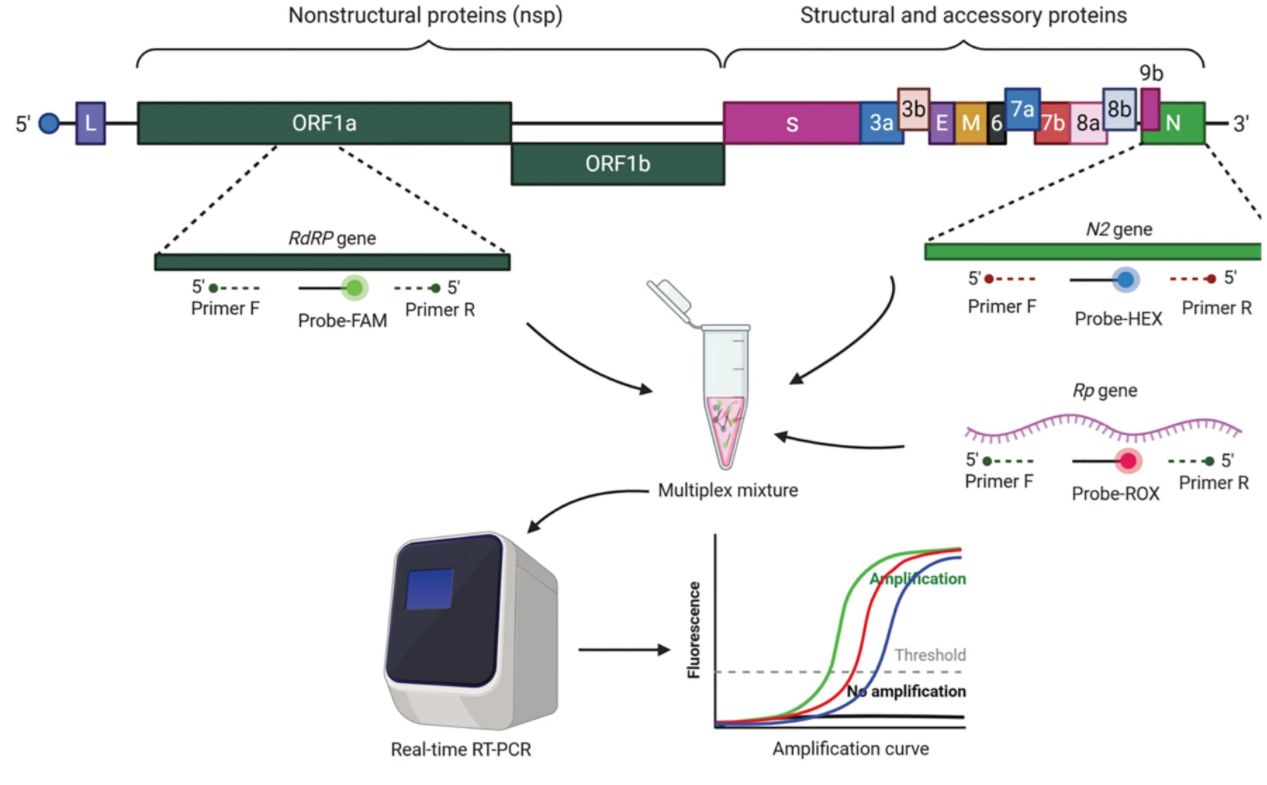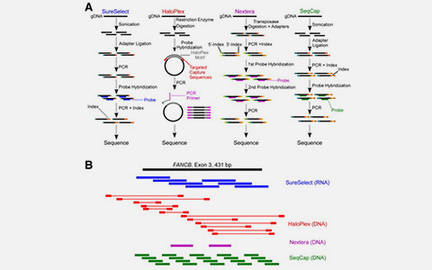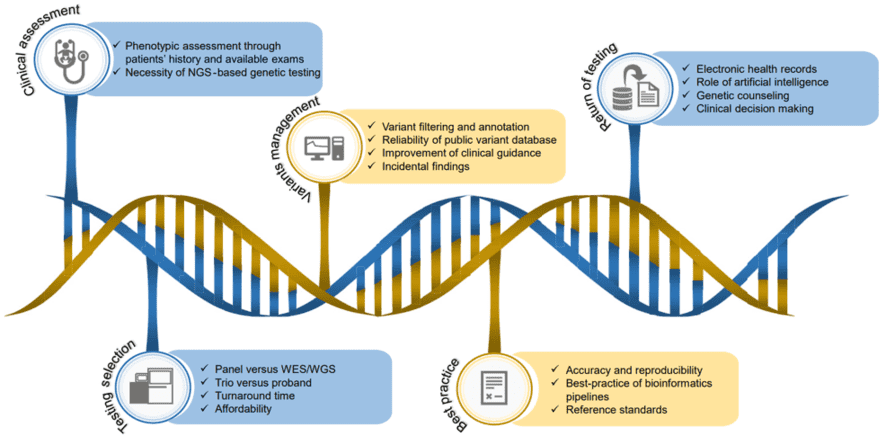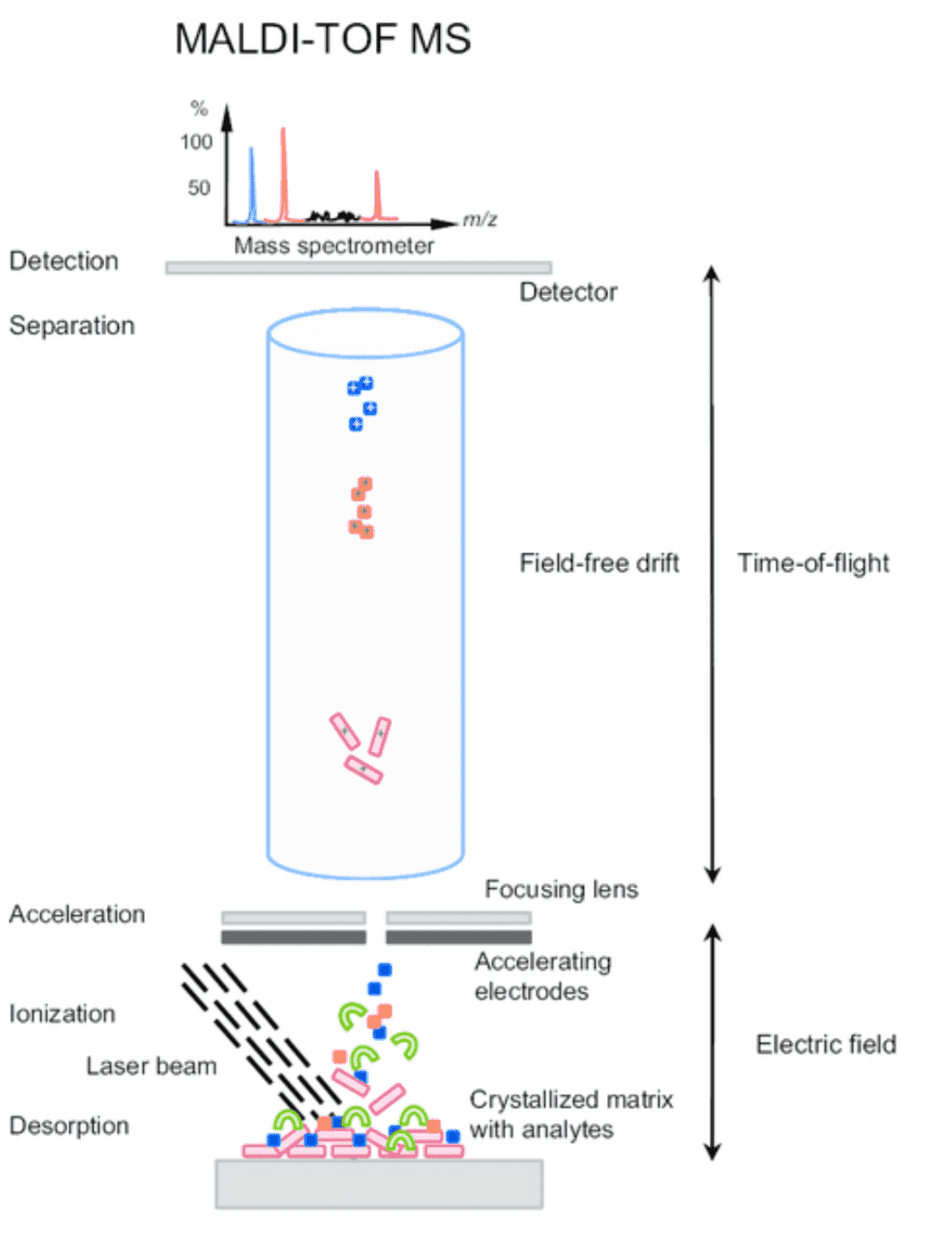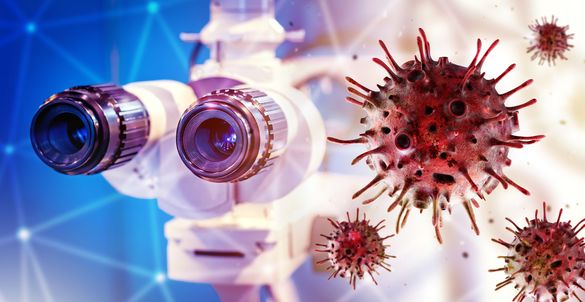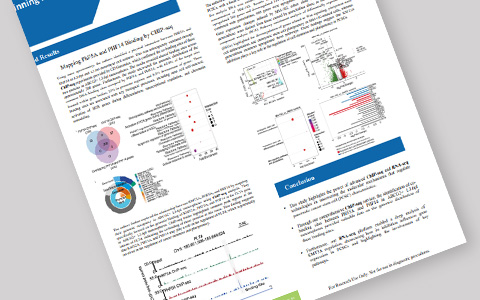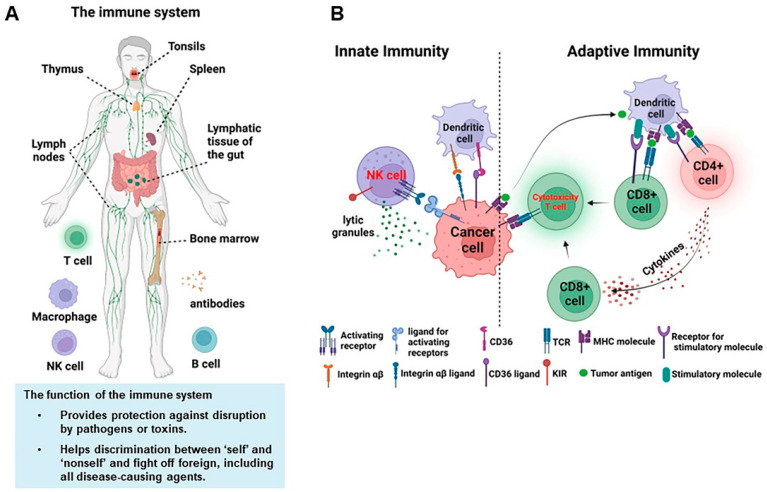Custom Rheumatoid Arthritis Panel

What is rheumatoid arthritis?
Rheumatoid arthritis is a common and complex autoimmune disease characterized by erosive, symmetrical multiple arthritis and systemic extra-articular manifestations. The immune system involved in rheumatoid arthritis can cause inflammation of the synovial membrane and abnormal inflammation such as joint pain and stark, especially, progressive joint damage and functional disability. Rheumatoid arthritis can cause severe joint damage that can affect normal movement and even lead to severe disability. Rheumatoid arthritis affects about 1.3 million adults in the United States, and the prevalence of rheumatoid arthritis among different populations varies significantly across the globe. The genome-wide association studies (GWAS) identified rheumatoid arthritis is a combination of genetic risk alleles, and is found that rheumatoid arthritis shares a common inheritance among different ethnic groups.
Disease-related gene description
Variations in dozens of genes have been studied as risk factors for rheumatoid arthritis. Rheumatoid arthritis may be caused by a complex interaction of multiple susceptibility genes such as human leukocyte antigen (HLA) genes,especially the HLA-DRB1 gene, as well as environmental factors and certain exposure factors. The proteins produced by the HLA genes help the immune system to distinguish the body's proteins from proteins made by foreign invaders such as viruses and bacteria. HLA genes are mapped on the short (p) arm of chromosome 6 at position 21.33. The HLA-DPB1 gene is a member of the MHC class II genes. The MHC class II genes are considered to belong to a genome that instructs related genes to produce corresponding proteins on the surface of a particular immune system cell. The proteins produced from the HLA-DPB1 gene attach to protein fragments (peptides) outside the cell, which are displayed to the immune system by MHC class II proteins. If the immune system discerns the peptides as the foreign (such as viral or bacterial peptides), it causes a reaction to assault the invading viruses or bacteria. The PTPN22 protein encoded by PTPN22 gene regulates the reaction of immune system cells called T cells in signal transduction. T cells recognize foreign substances and protect the body from infection. The STAT4 protein encoded by STAT4 gene plays a role in increasing the activity of genes that assist T-cells to transform into Th1 cells. The Th1 cells generate particular cytokines and provoke other immune cells to shake off foreign invaders in the cell. Apart from HLA-DRB1 gene, there are highly characteristic single nucleotide polymorphism genes such as AFF3, ARID5B, CD58, CTLA4, GATA3 and other genes.
To provide clinical researches associated with HLA-DRB1 and other similar genes, our custom rheumatoid arthritis panel platform provides an exhaustive rheumatoid arthritis panel library which includes numerous genes that you can select for genetic testing of rheumatoid arthritis. We offer targeted sequencing technology to analyze the genetic variants among the rheumatoid arthritis genes, which can help researchers understand the pathogenesis of rheumatoid arthritis.
Custom rheumatoid arthritis panel offers but not limited to:
-
With amplicon sequencing by the Illumina MiSeq system and Ion AmpliSeq targeted sequencing by the Ion PGM system, it can reduce the burden of cost and data analysis of rheumatoid arthritis genes.
-
Targeted sequencing gene panels analyze the selected gene(s) of interest with high sensitivity and specificity.
-
The collection of important genes for targeted sequencing can greatly reduce the scope of sequencing projects, which enables deeper coverage of those genes and higher resolution to reliably detect variations in low-frequency rheumatoid arthritis.
-
To ensure the accuracy of the experiment, each genetic variation result will be verified repeatedly.
-
Strictly guarantee the uniformity of the workflow to improve the credibility of the sequencing results.
-
You can choose a fixed set of genes that contain rheumatoid-arthritis-related genes, or you can design a custom panel based on the gene of interest.
Select the genes that fit you from the rheumatoid arthritis gene list
| AFF3 |
ARID5B |
BLK |
C5 |
CCL21 |
CCR6 |
| CD2 |
CD5 |
CD28 |
CD40 |
CD58 |
CTLA4 |
| FCGR2A |
FCGR2B |
GATA3 |
HLA-B |
HLA-DPB1 |
IKZF3 |
| IL2 |
IL2RA |
IL2RB |
IL6R |
IL6ST |
IL21 |
| IRAK1 |
IRF5 |
IRF8 |
KIF5A |
NFKBIL1 |
PADI4 |
| PIP4K2C
|
POU3F1 |
PRDM1 |
PRKCQ |
PTPN22 |
PTPRC |
| PXK |
RASGRP1 |
RBPJ |
RCAN1 |
REL |
RUNX1 |
| SPRED2 |
STAT4 |
TAGAP |
TLE3 |
TNFAIP3 |
TNFRSF14 |
| TRAF1 |
TRAF6 |
|
|
|
|
Specimen requirements of our custom rheumatoid arthritis panel
- Specimen: serum or extracted DNA.
- Collection: serum is stored in the serum separator tube. DNA samples are bottled into DNA collector with specific buffer.
- Storage/Transport Temperature: refrigerated.
- Unacceptable Conditions: urine or plasma. contaminated, heat-inactivated, hemolyzed, icteric or severely lipemic specimens.
Gene panel workflow

References:
- Viatte S, et al. Genetics and epigenetics of rheumatoid arthritis. Nat Rev Rheumatol, 2013, 9(3):141-153.
- Kallberg H, et al. Gene-Gene and Gene-Environment Interactions Involving HLA-DRB1, PTPN22, and Smoking in Two Subsets of Rheumatoid Arthritis. American Journal of Human Genetics, 2007, 80(5):0-875.
- Cheng C Y, et al. HLA Associations and Clinical Implications in T-Cell Mediated Drug Hypersensitivity Reactions: An Updated Review. J Immunol Res, 2014, 2014(6982):565320.
* For research purposes only, not intended for clinical diagnosis, treatment, or individual health assessments.
Related Services
Related Products
Related Resources



